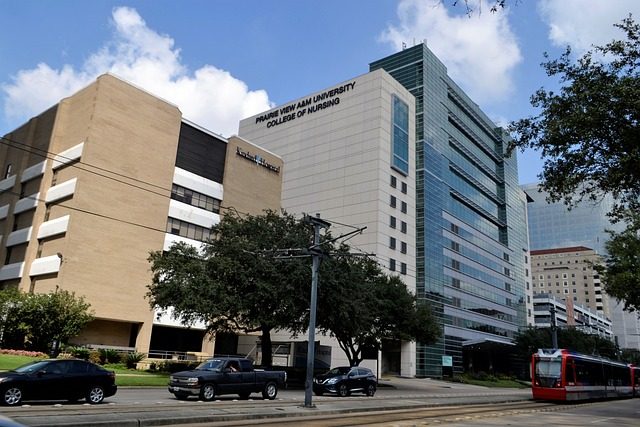Nursing is a vital profession that demands rigorous training and education. In Georgia, aspiring nurses have access to a variety of nursing programs tailored to meet the growing demand for healthcare professionals. Understanding the options available can help students make informed decisions about their educational paths.
This article explores the top nursing schools in Georgia, the programs they offer, the admission processes, and more.
Table of Contents
What are the best nursing schools in Georgia?
Georgia is home to numerous highly ranked nursing schools that cater to a variety of aspirations in the nursing field. Among the top nursing colleges in Georgia are:
- Georgia College & State University: Renowned for its Bachelor of Science in Nursing (BSN) program that emphasizes clinical reasoning and professional skills.
- Mercer University: Offers a comprehensive range of nursing programs, including prelicensure BSN and advanced degrees.
- Georgia Southern University: Known for its Accelerated BSN programs that fast-track nursing careers.
- Clayton State University: Provides affordable options for nursing education with strong community ties.
- Georgia Southwestern State University: Focuses on equipping students with the necessary skills for the nursing workforce.
These institutions not only offer quality education but also provide extensive clinical experiences that are crucial for nursing practice. Graduates from these programs often boast high employability rates.
What programs are available at nursing schools in Georgia?
Nursing schools in Georgia offer a diverse range of programs to meet varying student needs. Programs typically include:
- Bachelor of Science in Nursing (BSN): A four-year degree that prepares students for registered nursing licensure.
- Associate Degree in Nursing (ADN): A two-year program that allows graduates to take the NCLEX-RN exam.
- Accelerated BSN: Designed for individuals with a prior degree, this program allows for a quicker path to nursing.
- Master’s in Nursing: For those looking to advance their careers, often specializing in nurse practitioner roles.
- Doctoral Programs: Including Doctor of Nursing Practice (DNP) and Ph.D. options for leadership and academia.
These options ensure that students can select a path that aligns with their career goals and timelines. Many programs also incorporate clinical experiences to provide practical skills essential for the nursing profession.
How long does it take to complete a nursing program in Georgia?
The duration of nursing programs in Georgia varies based on the type of degree pursued. Generally, students can expect:
- BSN programs: Typically take four years if pursued full-time.
- ADN programs: Generally require two years of study.
- Accelerated BSN: Can be completed in about 12 to 18 months, depending on the program format.
Moreover, students must account for additional time for clinical rotations, which are essential for hands-on experience. These rotations can extend the timeline for completing the degree.
What is the admission process for nursing schools in Georgia?
The admission process for nursing schools in Georgia can be competitive, relying on several key factors:
- Prerequisite Courses: Many programs require completion of specific coursework before applying.
- GPA Requirements: Most nursing programs have a minimum GPA requirement for applicants.
- Admission Tests: Some schools may require standardized test scores such as the TEAS or HESI.
- Interviews: Selected candidates may need to participate in an interview as part of the selection process.
Due to limited spaces in nursing cohorts, applicants should prepare thoroughly to enhance their chances of acceptance. High academic performance and relevant experiences can set candidates apart.
What is the cost of attending nursing schools in Georgia?
The cost of nursing education in Georgia can vary significantly depending on the institution and program chosen. Here are some factors to consider:
- Tuition Rates: Public institutions often offer lower tuition compared to private colleges.
- Additional Fees: Costs for materials, clinical experiences, and lab fees can exceed $2,000.
- Living Expenses: Students should also budget for housing, food, and transportation.
Financial aid options, scholarships, and grants are available to help alleviate some of the financial burdens associated with nursing education.
What career opportunities are available after graduating from nursing schools in Georgia?
Graduates from nursing schools in Georgia can explore numerous career paths. The demand for nurses continues to grow, leading to promising job opportunities:
- Registered Nurse (RN): The most common role, working in hospitals, clinics, and community health.
- Nurse Practitioner (NP): Advanced practice nurses who provide primary care and specialized services.
- Clinical Nurse Specialist: Focused on improving patient care and outcomes within specific populations.
- Nurse Educator: Teaching future nurses in academic settings.
According to recent statistics, registered nurses in Georgia can expect an average salary of around $79,477, with opportunities for advancement in specialized fields.
What are the accreditation standards for nursing schools in Georgia?
Accreditation is crucial for ensuring the quality of nursing education. In Georgia, nursing programs must meet standards set by various accrediting agencies:
- Commission on Collegiate Nursing Education (CCNE): Recognizes quality nursing programs at the baccalaureate and graduate levels.
- Accreditation Commission for Education in Nursing (ACEN): Focuses on nursing programs at all levels of education.
Accredited programs provide assurance that the education meets industry standards, which is essential for licensure and employment opportunities.
Related questions about nursing schools in Georgia
How long does it take to become an RN in Georgia?
Becoming a registered nurse (RN) in Georgia typically requires completion of an accredited nursing program, which usually takes two to four years, depending on the degree. After that, candidates must pass the NCLEX-RN exam to obtain licensure. Most individuals can expect to complete their education and licensure process within two to four years.
What is a 2 year RN degree called?
A two-year RN degree is commonly referred to as an Associate Degree in Nursing (ADN). This degree allows graduates to take the NCLEX-RN exam and become licensed registered nurses. ADN programs are designed to provide the essential skills and knowledge required to enter the nursing workforce quickly.
Which college has the best nursing program in GA?
While several colleges offer excellent nursing programs, Georgia College & State University is often recognized for its high-quality Bachelor of Science in Nursing (BSN) program. Its focus on clinical reasoning and professional skills, along with its state-of-the-art facilities, contributes to its reputation as one of the best nursing schools in Georgia.
What is a low GPA for nursing school?
A low GPA for nursing school typically refers to a GPA below 3.0 on a 4.0 scale. Many nursing programs have competitive admission criteria and may require a minimum GPA of 2.75 to 3.0. However, specific requirements can vary by institution, so it is essential to check with the individual school for their standards.
This overview of nursing schools in Georgia aims to provide insights into the educational landscape, helping prospective students navigate their journey in the nursing profession.








